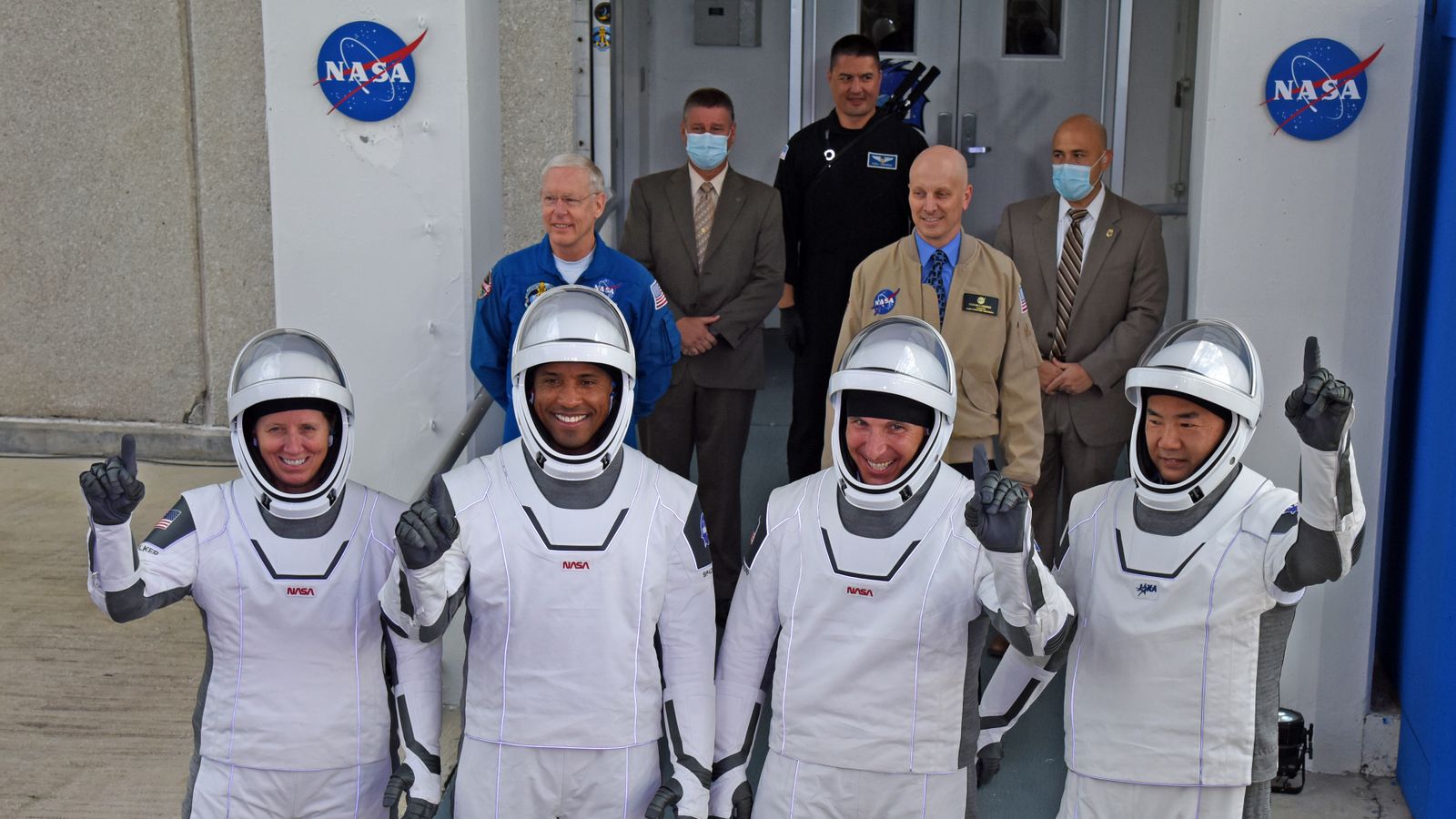The hunt is on for the next cohort of European Space Agency (ESA) astronauts to take part in upcoming missions, including manned missions to the moon in the 2020s and 2030s.
The next astronaut could be selected from the UK as part of ESA‘s first recruitment drive since 2008. British citizens of any age and from any walk of life are invited to apply as part of a pilot project.
The project is also inviting people with a lower limb deficiency or of short statute to apply for the astronaut reserve.
Applicants must otherwise be aged between 27 and 37 and within the height range of 153 to 190cm (5′ to 6’2″), but the project aims to open the career path to excellent candidates who have been excluded from space flight.
Although most astronauts have had extensive careers as military pilots, ESA says this is not necessary, but candidates “should be knowledgeable in scientific disciplines and should have proven outstanding ability in applicable fields, preferably including operational skills”.
All candidates, including those with a physical disability, will need a master’s degree (or higher) and a minimum of three years’ experience in natural sciences, medicine, engineering, mathematics or computer sciences.
Other than the pilot programme for astronauts with disabilities, ESA says candidates “should be in good health, have a satisfactory medical history, be of normal weight and have a sound mental disposition”.
“Specific tests are performed to evaluate applicants’ bodily systems (muscular, cardiovascular and vestibular). These tests use facilities such as centrifuges, rotating chairs, pressure chambers and aircraft,” the agency adds.
After an intensive training period, which includes a three-week course in caving and a course in practical geology, the new astronauts will take their first flights into space when they are deployed to the International Space Station (ISS).
They will form part of the crew for the next missions to the moon in the late 2020s and through the 2030s.
ESA says it will invest in the necessary adaptations of space hardware to enable the otherwise qualified professionals who have physical disabilities to serve as crew members on a safe space mission.
The UK Space Agency expects the next professional astronaut from the UK to be selected in this recruitment round and is encouraging all eligible applicants to apply.
Major Tim Peake said: “Over the next few years and decades, space exploration will become even more exciting as we travel back to the moon and even further to Mars.
“For space missions to succeed, they require highly motivated people from diverse backgrounds to combine their skills and work as a team.
“The next generation of UK citizens have so much to offer the world, and so I would encourage anyone who has dreamt of pushing the boundaries of what is possible to take this opportunity to be part of ESA’s future cohort of space pioneers.”
Major Peake was the first British person recruited through the ESA astronaut programme where he and five other applicants from the United Kingdom made it to the final stage of the application process – in 2015 he became the first Briton to live on the ISS.
Science minister, Amanda Solloway, said: “Becoming an astronaut is a dream for many, and Tim Peake’s historic mission to space in 2015 showed millions of Brits that it can become a reality, while putting the UK firmly on the map as a leading space-faring nation.
“With the UK space sector receiving more government backing than ever before, it’s time for a new generation of British astronauts to answer this call as we continue working with our European partners to push the boundaries of science and exploration even further.”
Applications will open on 31 March and stay open for two months.
There will then be a 17-month process of screening, psychological, practical, and psychometric testing, medical selections and two interview selections until the final applicants will be appointed and announced in October 2022.






















